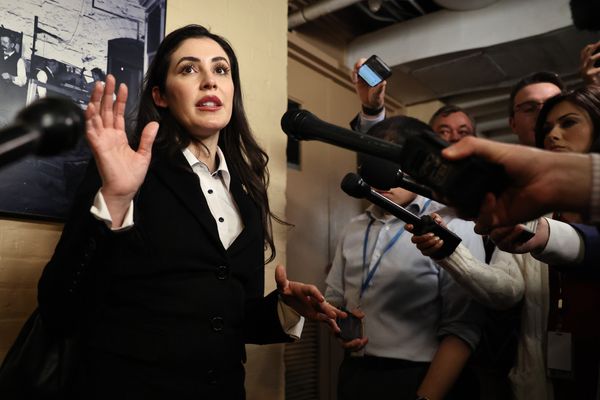
Fifa has increased its World Cup revenue by more than $1bn (£840m) after taking the tournament to Qatar, the governing body has revealed.
Gianni Infantino, the subject of widespread criticism on Saturday after a provocative opening speech, shared information regarding the record income with his national associations on Sunday.
Revenue generated by the four-year cycle of the Qatar World Cup (from 2018 to 2022, including an extra five months because of the winter schedule) will reach $7.5bn, compared with $6.4bn for the previous cycle in Russia.
With television rights deals agreed a decade ago, the Guardian understands much of the uplift has been created by a recent increase in sponsorship and there has also been a reduction in costs because of the compact nature of the tournament.
Sponsorship has been boosted by a series of lucrative deals with Qatari companies, including the announcement in March of the state-owned oil and gas company QatarEnergy as tournament partner. Qatar Energy joined the state-owned Qatar Airways on the top tier of sponsors, and the telecoms company Ooredoo – which is 68% owned by the state – was named in the same month as “official global connectivity services provider”. The Qatari National Bank group – joint owned by the state and the Qatari public – is the “official Middle East and Africa supporter” and “official Qatari Bank” of the tournament.
This is a World Cup like no other. For the last 12 years the Guardian has been reporting on the issues surrounding Qatar 2022, from corruption and human rights abuses to the treatment of migrant workers and discriminatory laws. The best of our journalism is gathered on our dedicated Qatar: Beyond the Football home page for those who want to go deeper into the issues beyond the pitch.
Guardian reporting goes far beyond what happens on the pitch. Support our investigative journalism today.
Fifa has made substantial cost savings from scheduling a tournament essentially in one city. All eight World Cup stadiums are within a 50km radius of Doha, which has allowed organisers to use a single set of tournament infrastructure – including media facilities and hotels – and cut down substantially on travel costs for which Fifa is liable.
Fifa officials estimate the windfall will generate an extra $700,000 in investment for the game, with $300,000 accounted for in emergency Covid funding. The next four years will also see an increase in funding for Fifa’s forward programme with $200m to be spent each year on international talent development, a project overseen by Arsène Wenger. Fifa says that more funding will also be accompanied by an increased oversight on spending.
Infantino has been urged by a coalition of charities and NGOs to commit to paying $440m, equivalent to the pool of World Cup prize money, as compensation to migrant workers who were harmed in building the World Cup in Qatar and to the families of those workers who died. Infantino addressed the topic on Saturday, saying a fund would be established but that “the amount will be decided after the World Cup” and that “anyone who wants to invest shall invest”. It is understood the topic was not raised during Sunday’s meeting.
Infantino, the subject of mockery after he compared himself to a migrant worker in his address to open the World Cup, has received some support from the Welsh first minister, who is in Qatar for the tournament despite complaints at home.
Mark Drakeford said that while the Fifa president’s speech reminded him of the former chancellor Denis Healy’s first law of holes – “when you’re in one, stop digging” – he thought Infantino had made valid points about the need for western countries to confront their own history before criticising the contemporary failings of others.
“Wales is an outward-looking, inclusive nation where people’s rights really matter to us,” Drakeford said. “But it wasn’t always like that. In our own history, we have had times when things that we have done, including things that we have done in other parts of the world, wouldn’t measure up to the sorts of beliefs and standards that we hold ourselves to today. So to take a moment to reflect on our own histories, it’s not a moment wasted.”







